Happy Friday GPODers!
We’re going tropical today and taking a look at some plant highlights from a recent trip I took to Delray Beach, Florida.
I’m a strong believer that plants are exciting and interesting no matter the locale—whether you’re 10 minutes down the road or on the other side of the globe. However, I will also be the first to admit that seeing plants and wildlife in a climate vastly different than the one you’re most accustomed to can be the most awe-inspiring and informative experience. I’ve had the opportunity to travel down to southern Florida a few times over the past couple of years, but each time I’ve been equally excited and enamored by the succulents, palms, and various tropical plants growing in all their glory. I don’t think I’ll ever forget the first time I saw a gorgeous variegated croton (Codiaeum variegatum, Zones 11–12) (a plant I have failed at growing indoors countless times) as a huge, mature shrub growing in someone’s front yard as casually as I would see a arborvitae growing here in Connecticut.
All of this to say, my most recent trip was no exception. While the group I travelled with was checking out the rooms in our Airbnb, unpacking, and pouring drinks, I was immediately outside snapping pictures of all the fabulous plants in the small but wonderful garden border around the pool. You’ll find those photos below, as well as some other plants I spotted during our excursions in town.
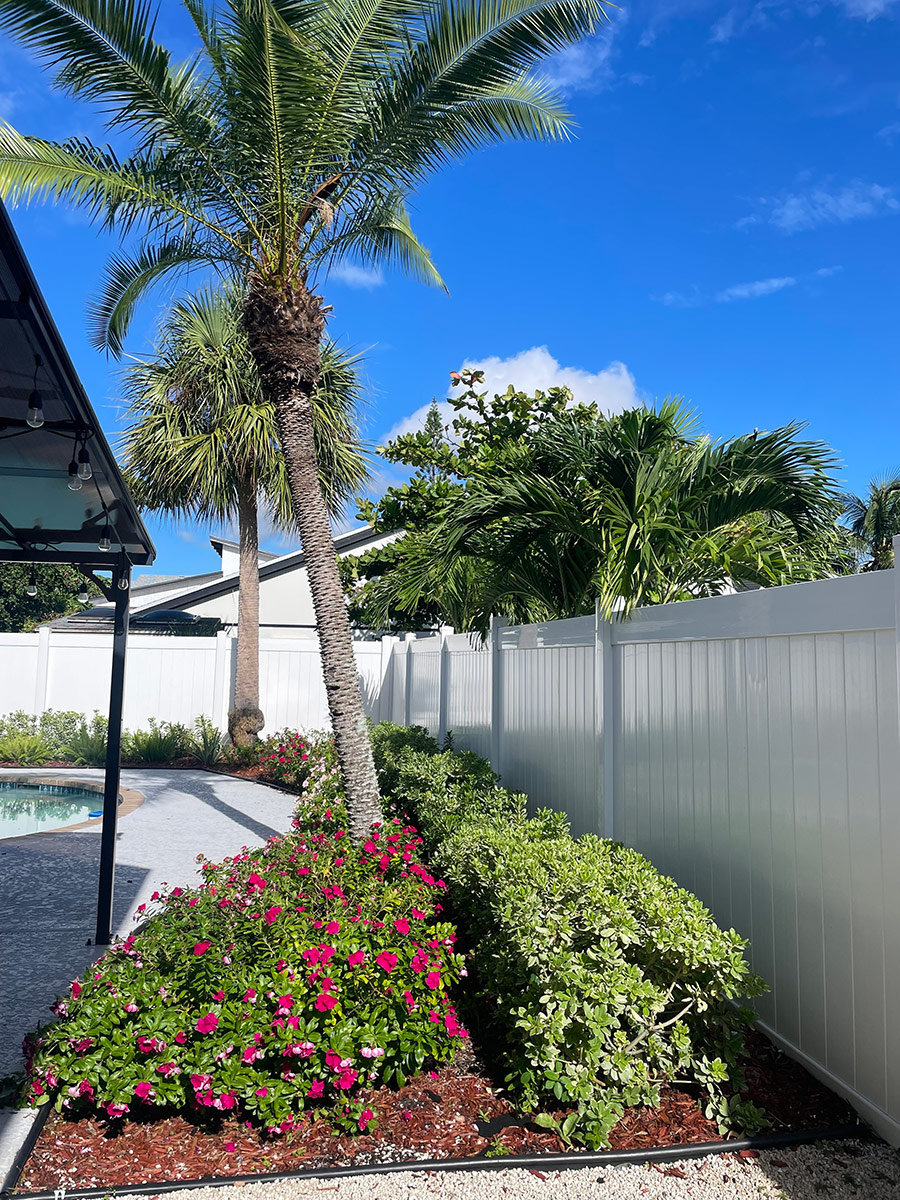 The scene that instantly caught my eye from the french doors in the dining room. The palms are always exciting to see, but it was the bright pink flowers and succulent-looking hedge that drew me in for a closer look.
The scene that instantly caught my eye from the french doors in the dining room. The palms are always exciting to see, but it was the bright pink flowers and succulent-looking hedge that drew me in for a closer look.
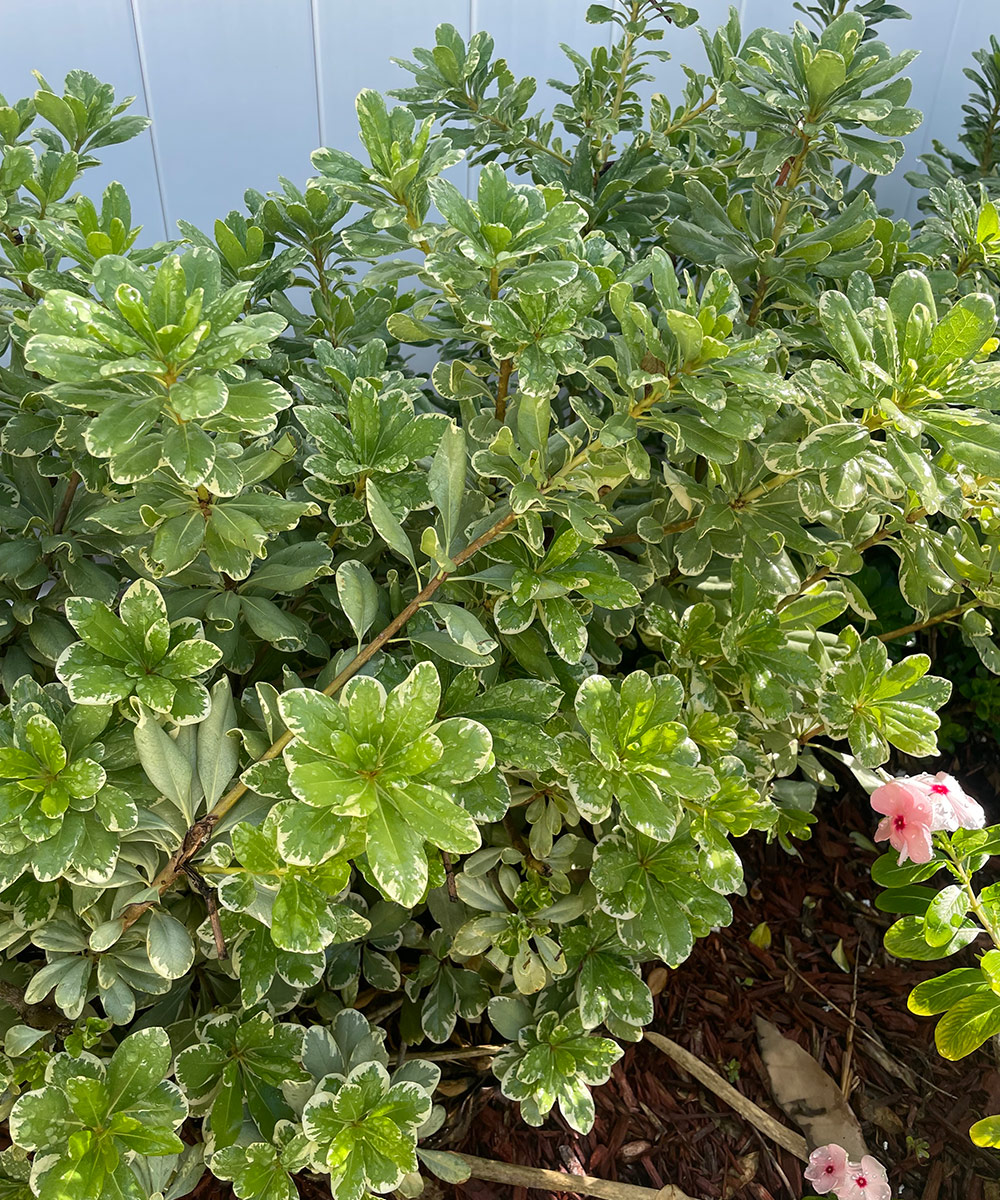 Not a succulent upon closer inspection, but a handy plant identifier app let me know this was a variegated Japanese pittosporum (Pittosporum tobira ‘Variegatum’, Zones 8–11). Beautiful all year round with it’s striking variegated foliage, but particularly attractive in spring when it’s covered in orange-blossom scented flowers.
Not a succulent upon closer inspection, but a handy plant identifier app let me know this was a variegated Japanese pittosporum (Pittosporum tobira ‘Variegatum’, Zones 8–11). Beautiful all year round with it’s striking variegated foliage, but particularly attractive in spring when it’s covered in orange-blossom scented flowers.
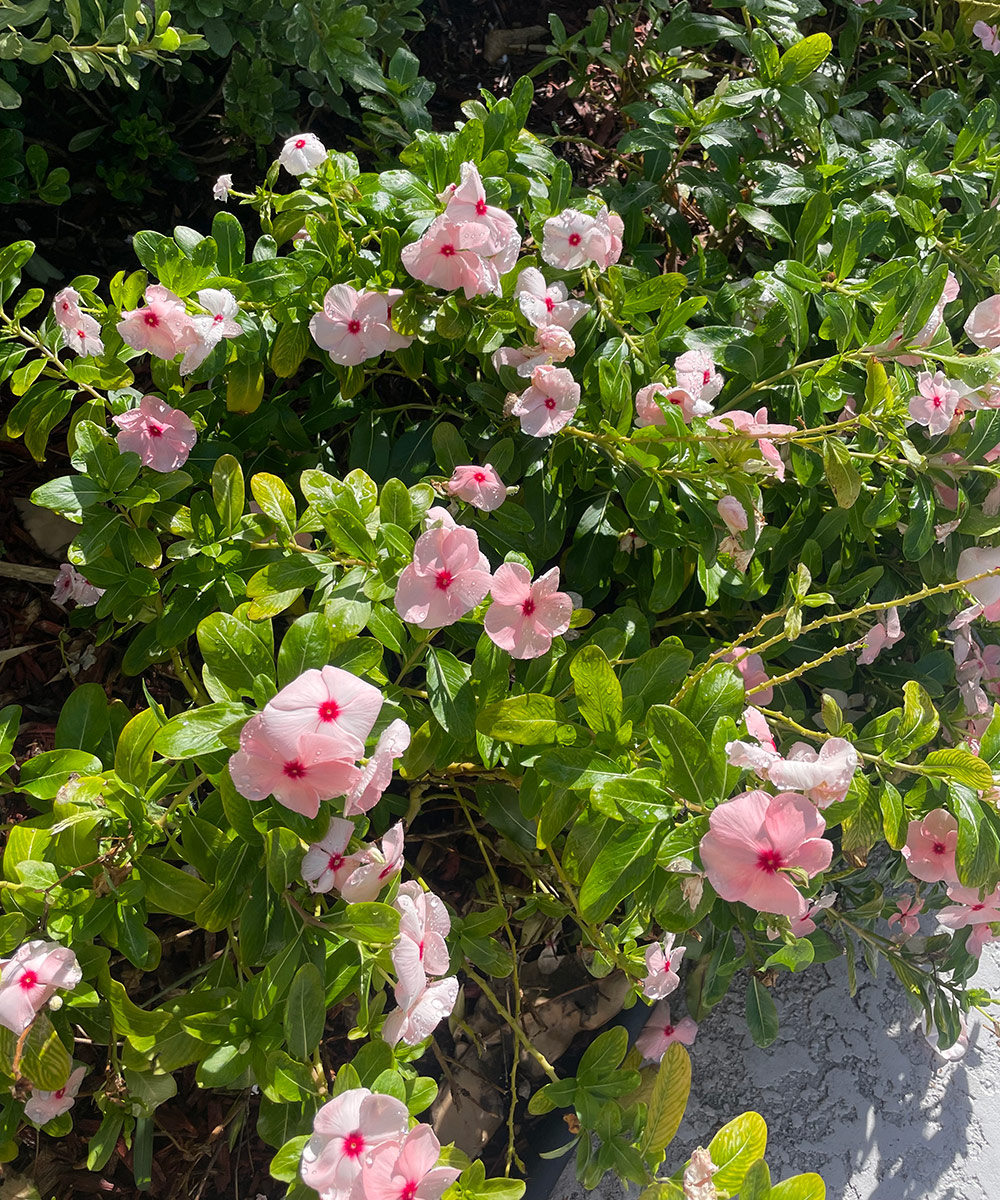 Easily mistaken for impatiens, common in similar shades of pink, red and white, Madagascar periwinkle (Catharanthus roseus, Zones 8–11) would still be considered an annual for colder regions but can be grown as a perennial here in Florida.
Easily mistaken for impatiens, common in similar shades of pink, red and white, Madagascar periwinkle (Catharanthus roseus, Zones 8–11) would still be considered an annual for colder regions but can be grown as a perennial here in Florida.
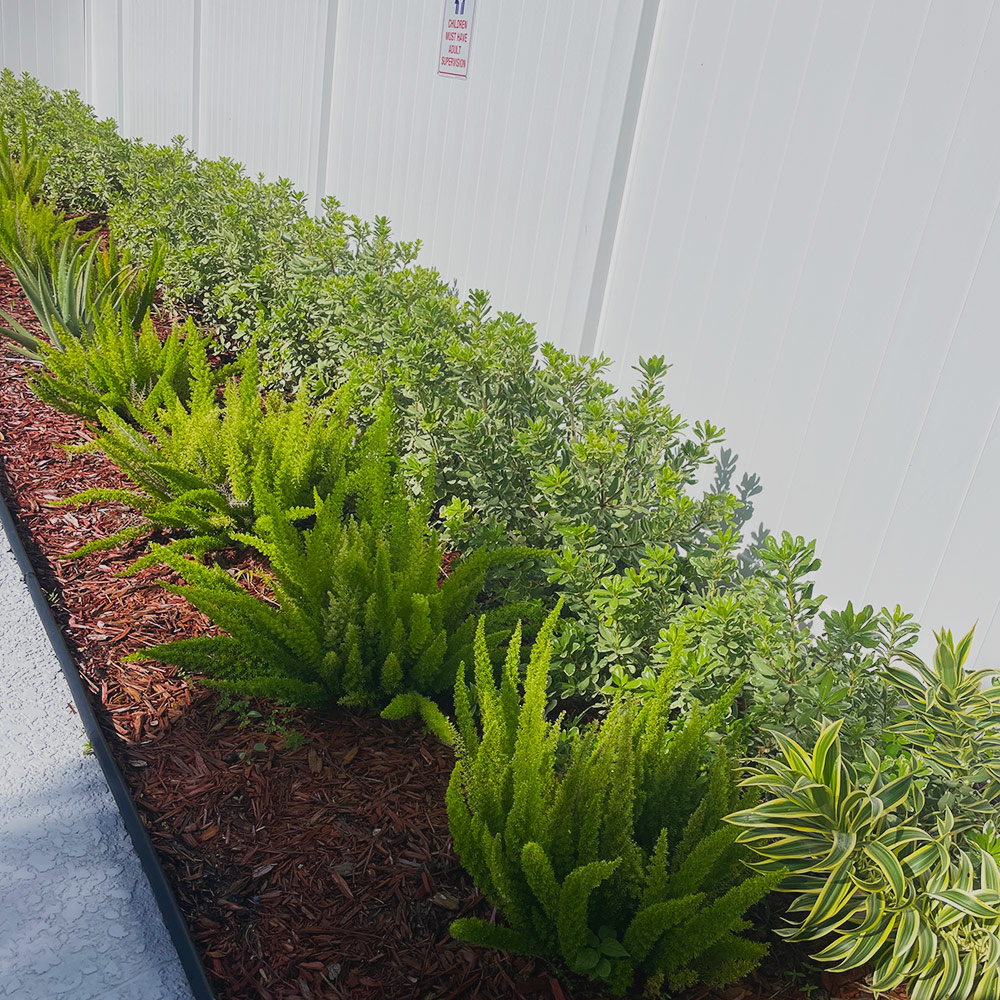 Another plant often grown indoors in colder climates, the vibrant color and other-worldly texture of ‘Myers’ foxtail fern (Asparagus densiflorus ‘Myers’, Zones 9–11) is an absolute treat to see in a garden bed. While this photo features solely foliage, there is still so much variation and interest.
Another plant often grown indoors in colder climates, the vibrant color and other-worldly texture of ‘Myers’ foxtail fern (Asparagus densiflorus ‘Myers’, Zones 9–11) is an absolute treat to see in a garden bed. While this photo features solely foliage, there is still so much variation and interest.
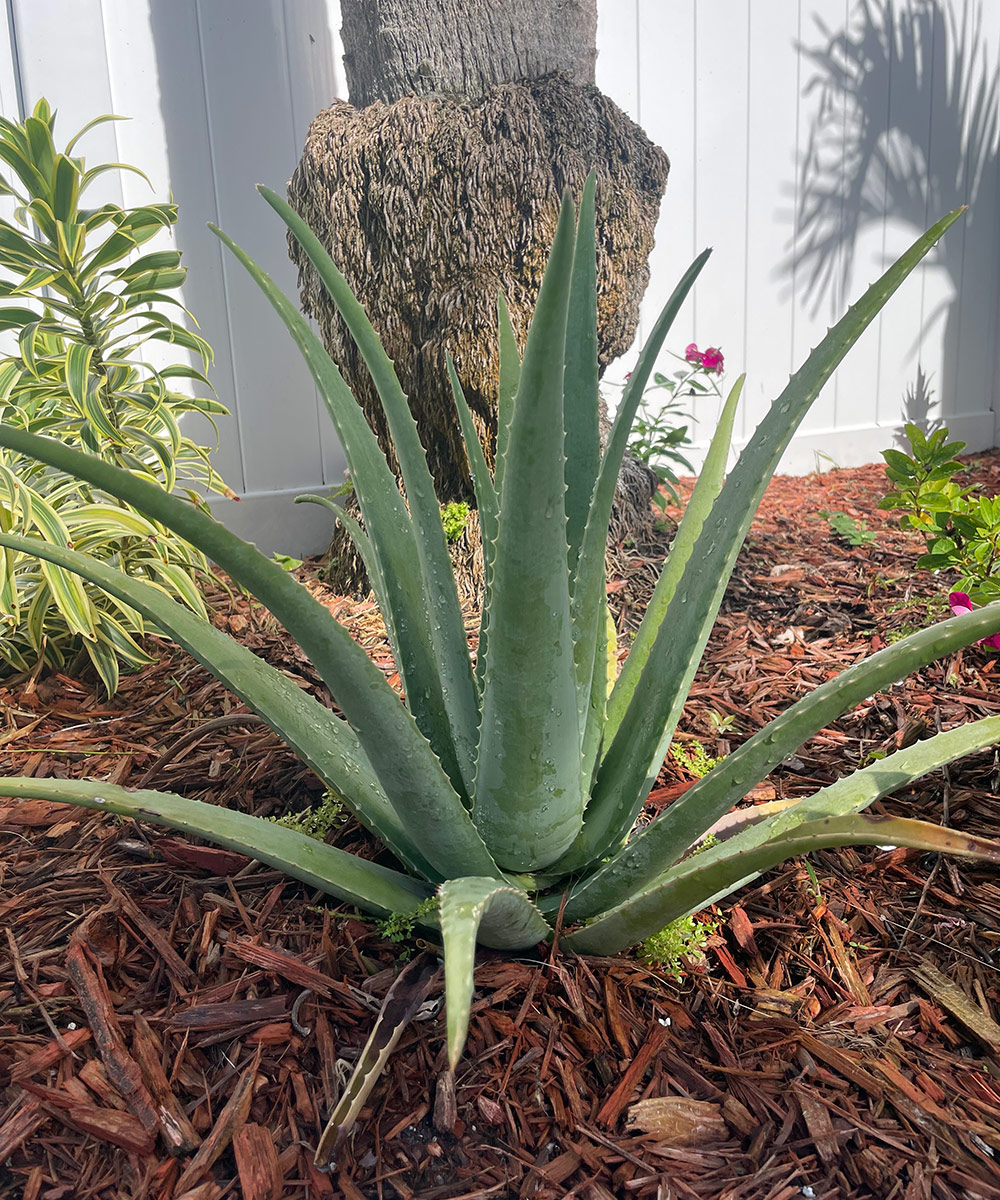 Dotted between some of the foxtail fern were a few aloe plants (Aloe vera, Zones 9–11), a beautiful and useful plant to have handy by the pool!
Dotted between some of the foxtail fern were a few aloe plants (Aloe vera, Zones 9–11), a beautiful and useful plant to have handy by the pool!
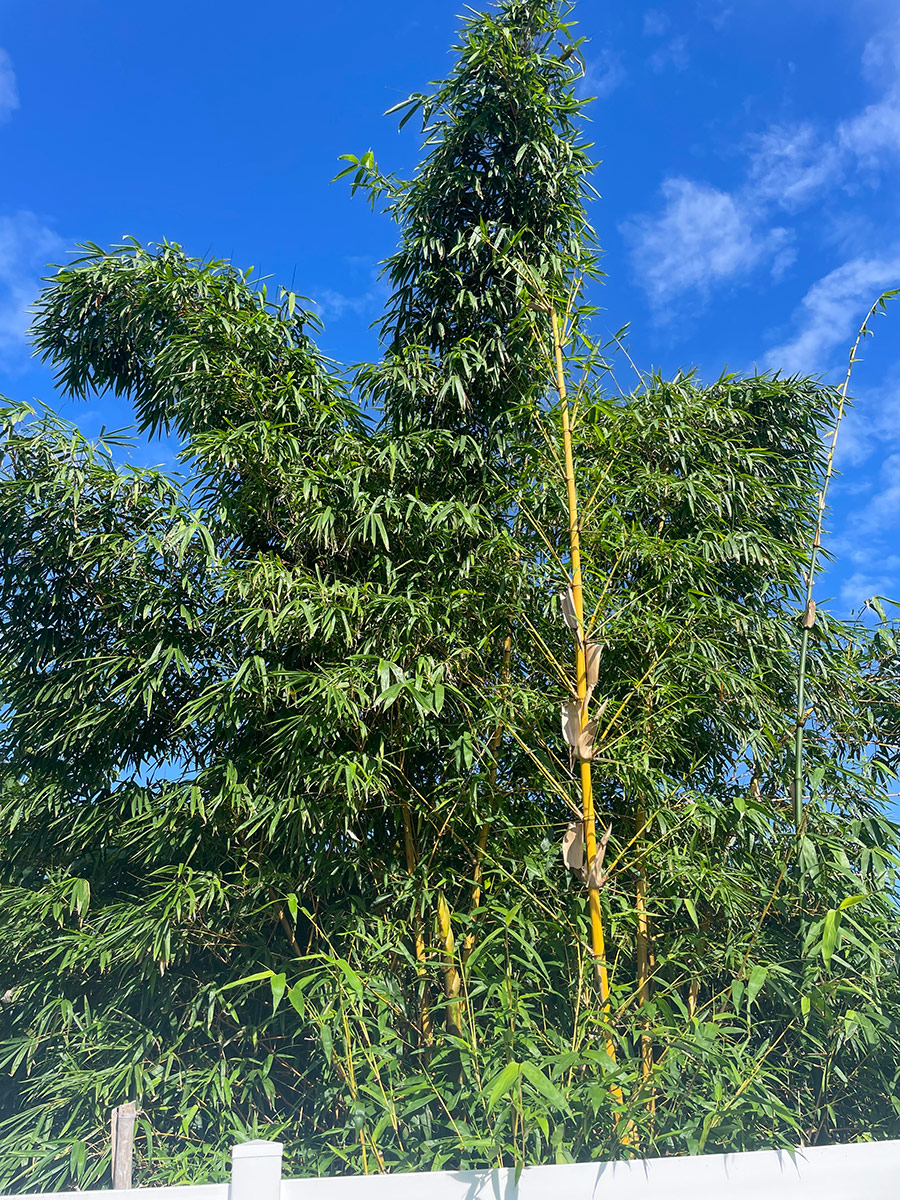 Some of my favorite plants around the pool were actually peaking over the fence from neighbor’s yards. The bright yellow culms of this Asian Lemon bamboo (Bambusa eutuldoides ‘Viridi-Vittata’, Zones 9–11) made it an absolute show stopper.
Some of my favorite plants around the pool were actually peaking over the fence from neighbor’s yards. The bright yellow culms of this Asian Lemon bamboo (Bambusa eutuldoides ‘Viridi-Vittata’, Zones 9–11) made it an absolute show stopper.
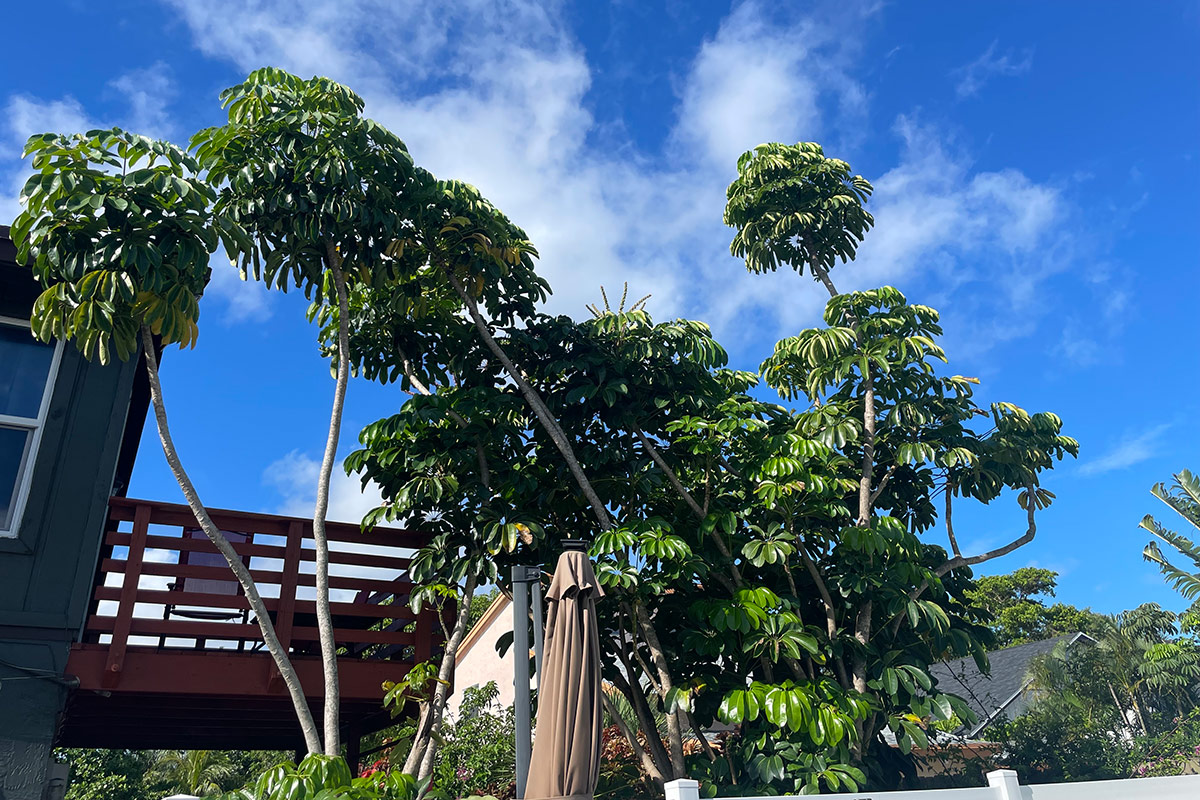 If I haven’t already made it abundantly clear, I am a sucker for an interesting-looking tree. The growing habit of this umbrella tree (Heptapleurum actinophyllum, Zones 10–12) looks straight out of the pages of Dr. Seuss, and everyone made a comment that the few yellow leaves looked like bunches of bananas at first glance.
If I haven’t already made it abundantly clear, I am a sucker for an interesting-looking tree. The growing habit of this umbrella tree (Heptapleurum actinophyllum, Zones 10–12) looks straight out of the pages of Dr. Seuss, and everyone made a comment that the few yellow leaves looked like bunches of bananas at first glance.
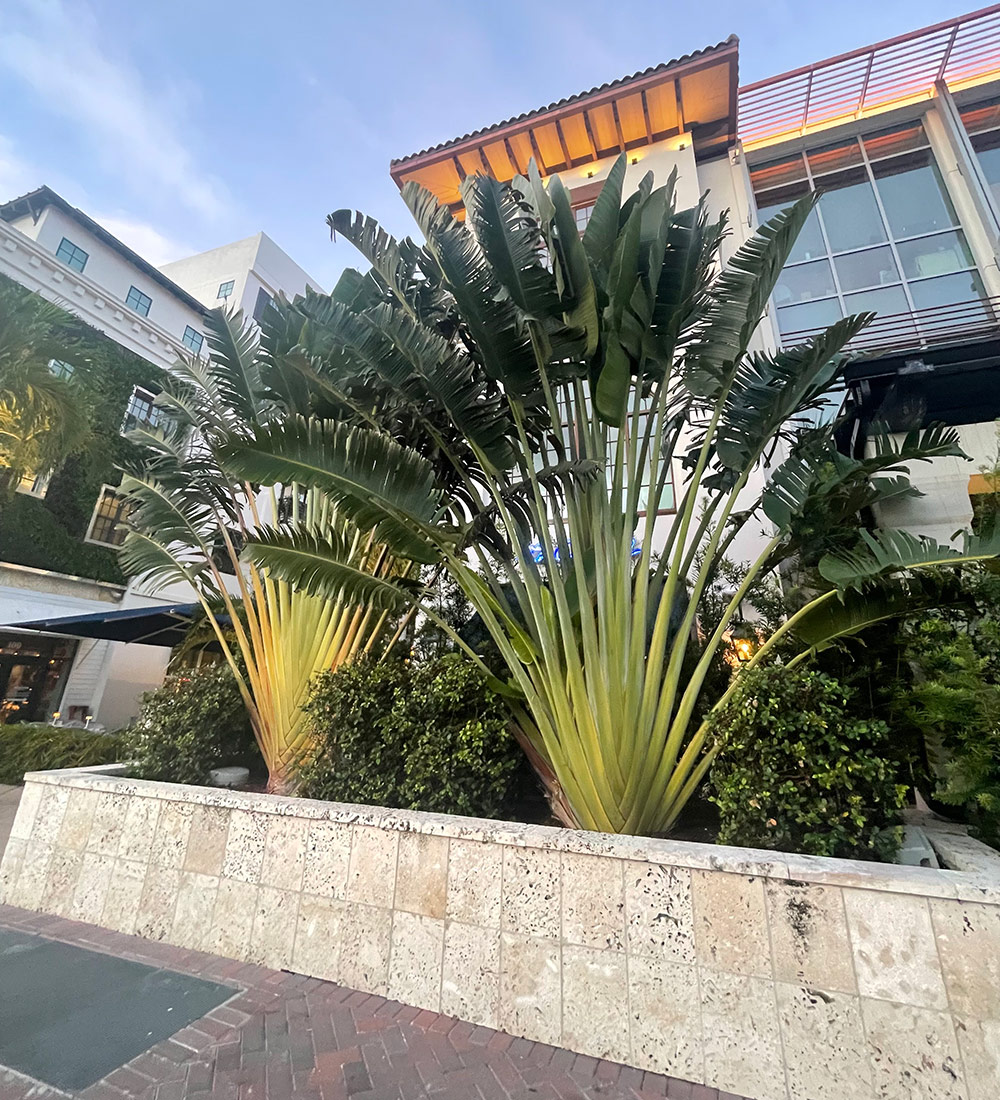 When we finally pulled ourselves out of the pull and headed downtown to grab dinner, there were still plenty of opportunities for plant watching. It’s hard to capture the true scale of large plants in photos, but these traveller’s palms (Ravenala madagascariensis, Zones 10–11) were absolutely massive. Though coined a palm, these tree-like plants are actually related to bird-of-paradise and can actually produce white flowers in a similarly spiky form.
When we finally pulled ourselves out of the pull and headed downtown to grab dinner, there were still plenty of opportunities for plant watching. It’s hard to capture the true scale of large plants in photos, but these traveller’s palms (Ravenala madagascariensis, Zones 10–11) were absolutely massive. Though coined a palm, these tree-like plants are actually related to bird-of-paradise and can actually produce white flowers in a similarly spiky form.
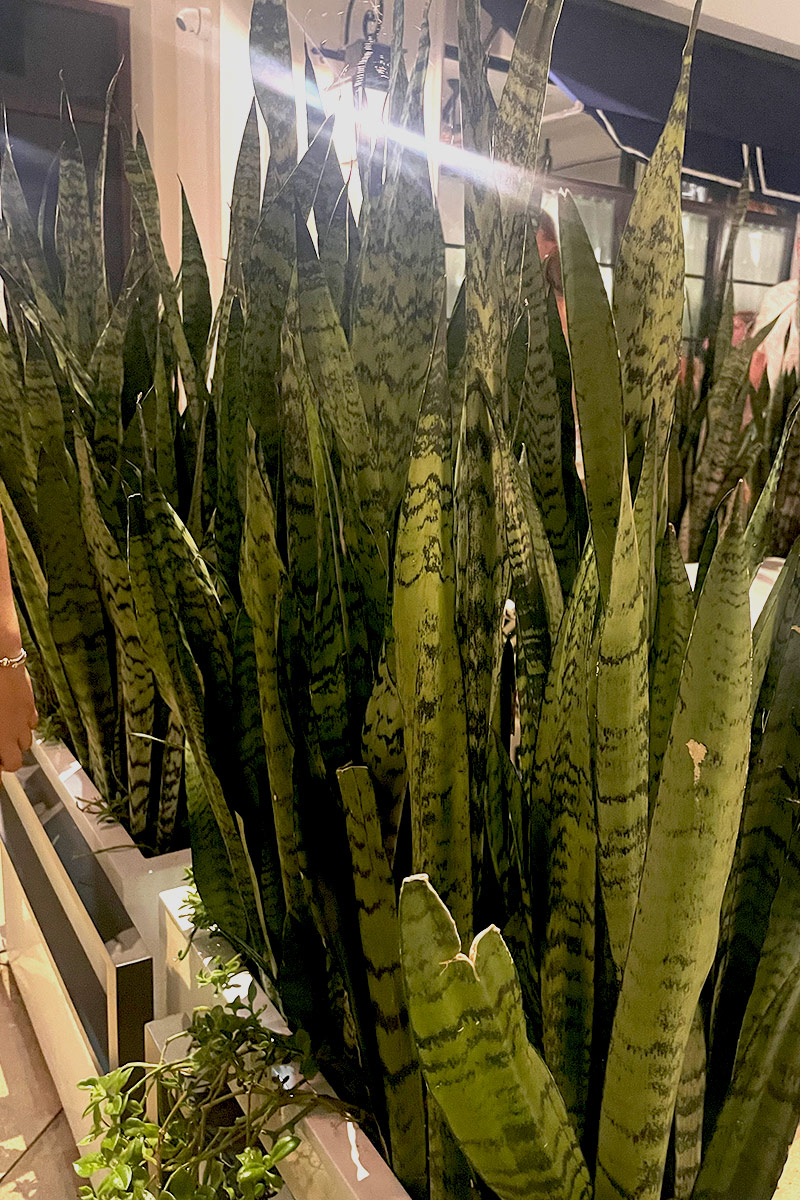 Yet another houseplant grown to a size us northern gardeners could only dream of! Snake plants (Dracaena spp. and cvs., syn. Sansevieria spp. and cvs., Zones 9–11) are notoriously easy to grow in just about every setting indoors, but just because they can adapt doesn’t mean they’re thriving like they are here.
Yet another houseplant grown to a size us northern gardeners could only dream of! Snake plants (Dracaena spp. and cvs., syn. Sansevieria spp. and cvs., Zones 9–11) are notoriously easy to grow in just about every setting indoors, but just because they can adapt doesn’t mean they’re thriving like they are here.
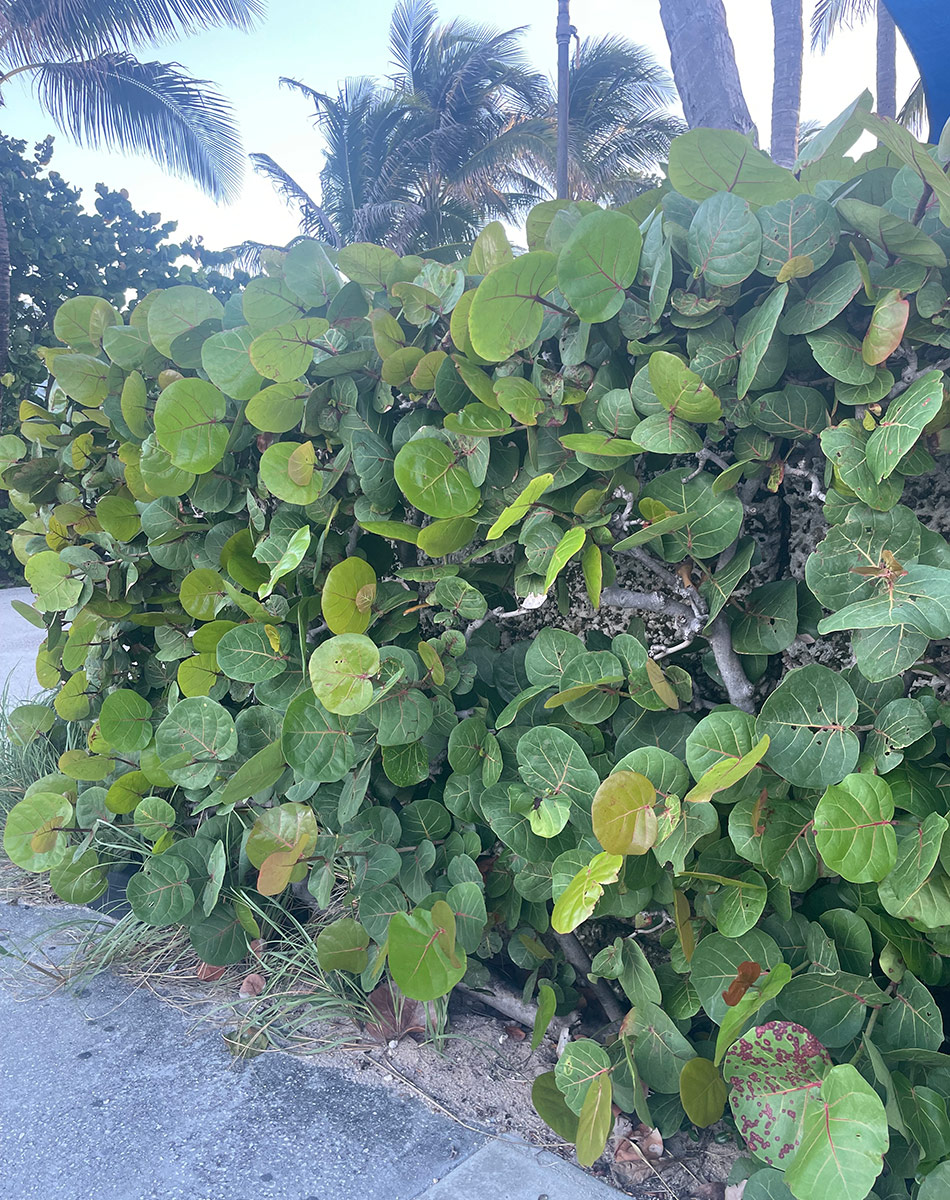 Making our way to the beach, a whole new world of plants can be found. Native to coastal beaches and very tolerant to salt, aptly named sea grape (Coccoloba uvifera, Zones 10–11) can be found growing in mass along beaches in southern Florida and the Caribbean.
Making our way to the beach, a whole new world of plants can be found. Native to coastal beaches and very tolerant to salt, aptly named sea grape (Coccoloba uvifera, Zones 10–11) can be found growing in mass along beaches in southern Florida and the Caribbean.
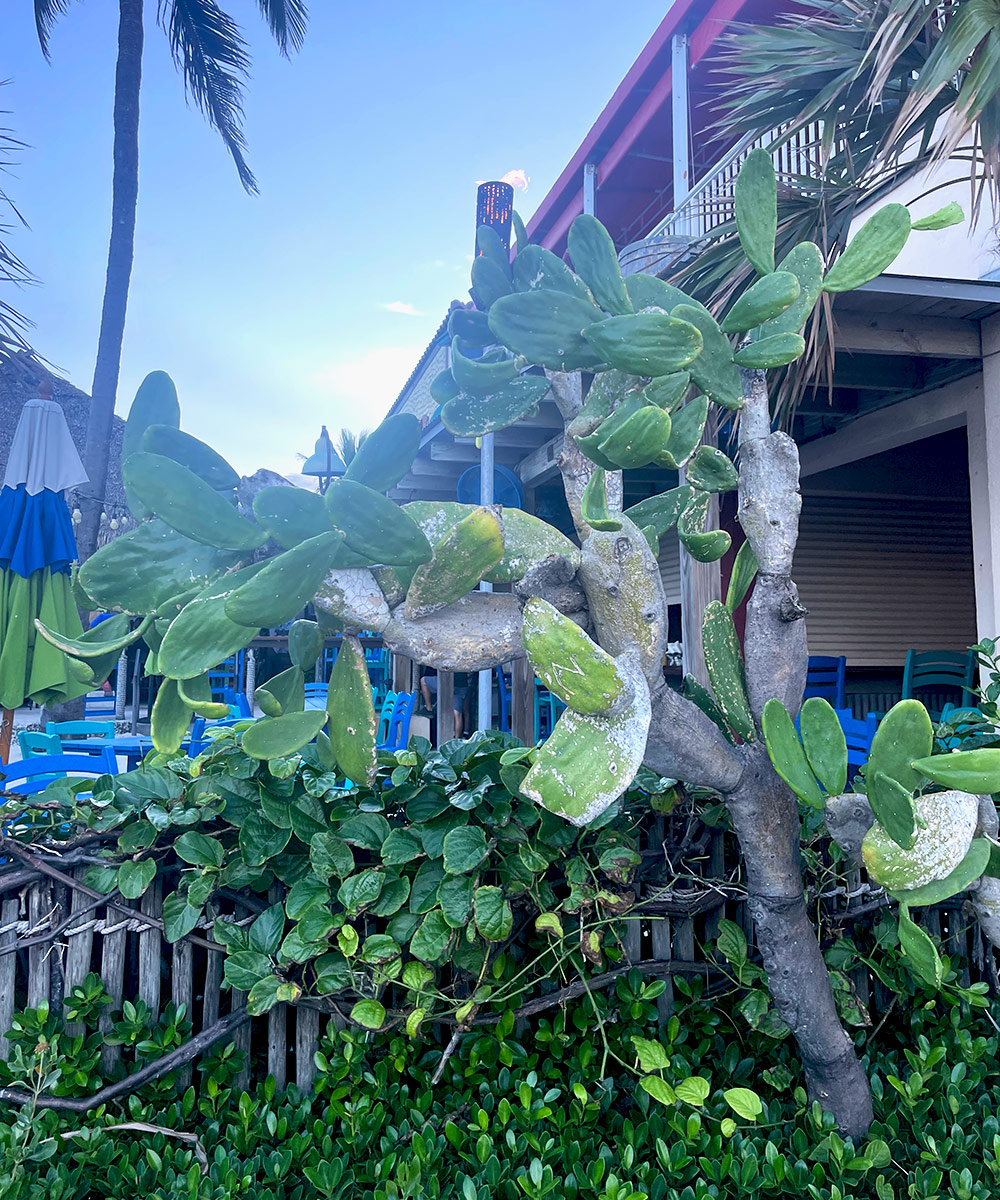 Saving one of my favorite finds for last, this spineless prickly pear (Opuntia ficus-indica, Zones 10–11) must have enjoyed this spot for some time by the looks of its pretty serious trunk. Never did I think my love of cacti and trees would combine, but now I’m brainstorming ways I can have this growing inside??
Saving one of my favorite finds for last, this spineless prickly pear (Opuntia ficus-indica, Zones 10–11) must have enjoyed this spot for some time by the looks of its pretty serious trunk. Never did I think my love of cacti and trees would combine, but now I’m brainstorming ways I can have this growing inside??
Thank you for joining me on this tropical plant reflection! If you’ve made it this far, let me know in the comments your favorite place to see new or interesting plants. It can be a vacation spot, a local garden, or your favorite nursery that is always selling something new. If you have a chance to go and take photos of your favorite finds, please share them in an email to [email protected] or send me a DM on Instagram: @agirlherdogandtheroad
Have a garden you’d like to share?
Have photos to share? We’d love to see your garden, a particular collection of plants you love, or a wonderful garden you had the chance to visit!
To submit, send 5-10 photos to [email protected] along with some information about the plants in the pictures and where you took the photos. We’d love to hear where you are located, how long you’ve been gardening, successes you are proud of, failures you learned from, hopes for the future, favorite plants, or funny stories from your garden.
Have a mobile phone? Tag your photos on Facebook, Instagram or Twitter with #FineGardening!
Do you receive the GPOD by email yet? Sign up here.
